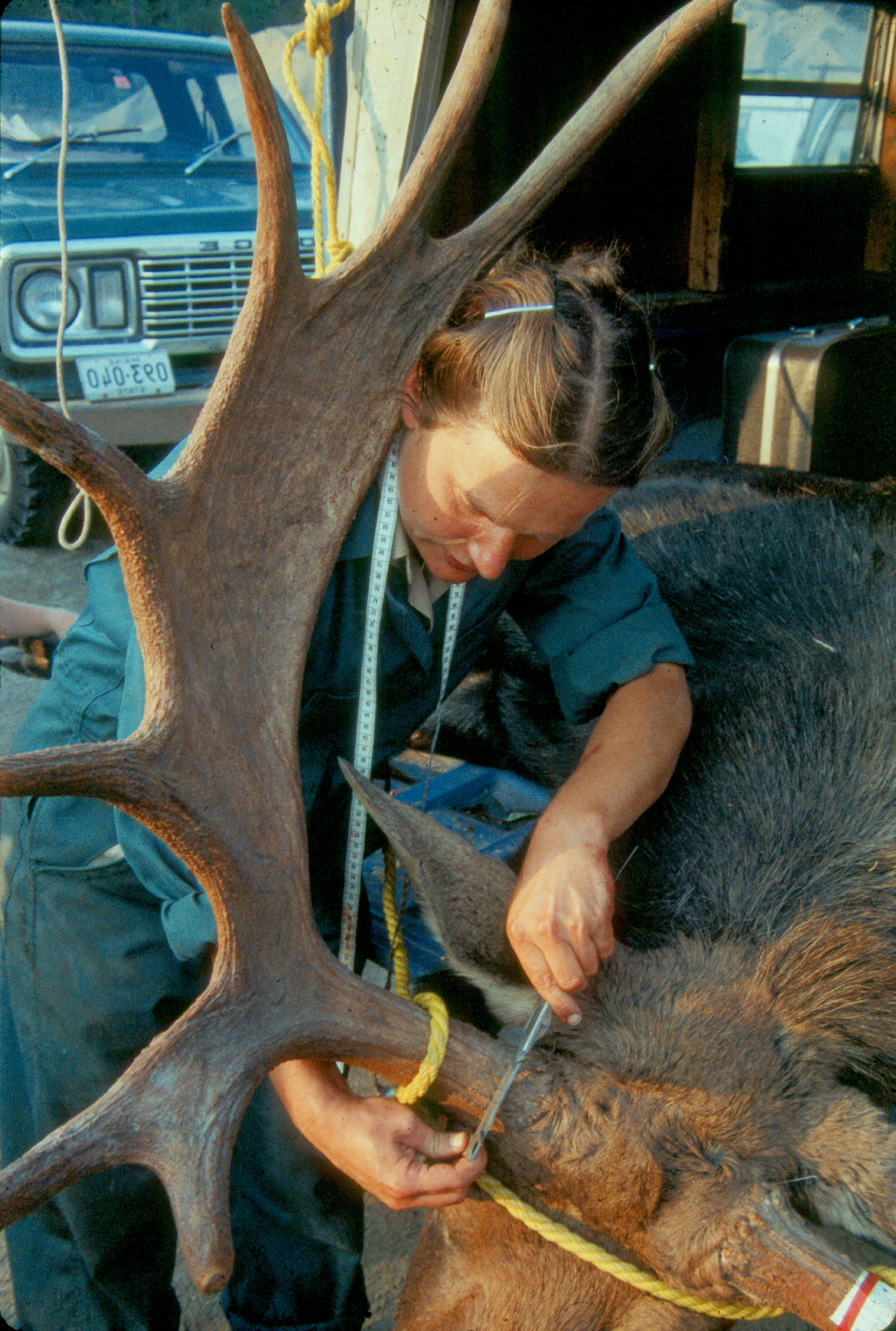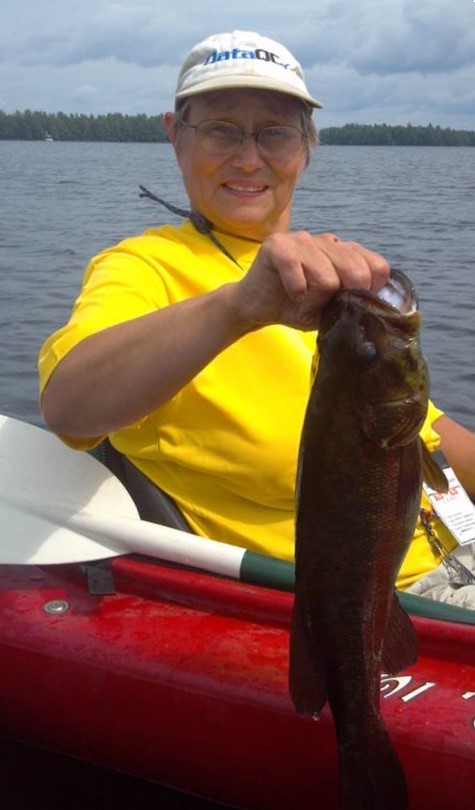March 25, 2024 at 2:37 pm
Women’s History Month is a time to recognize and pay tribute to the contributions that women have made throughout American history. This year, Maine Department of Inland Fisheries and Wildlife (MDIFW) is remembering and honoring two remarkable biologists who helped pave the way for women working in Maine’s wildlife and fisheries professions.
MDIFW’s First Female Wildlife Biologist
Karen I. Morris (August 27, 1950 – November 8, 2023)
In 1977, when natural resource fields were still very much a man’s world, Karen “Kim” Morris became the first female biologist hired by MDIFW. She got her start as part of the bear study field crew, but in 1980, took on the challenge of serving as the state’s moose biologist, just as Maine’s controversial experimental moose hunt was getting underway.
Karen successfully led MDIFW’s moose research and management program for the next 30 years. During that time, she oversaw the development of novel survey techniques, collection and analysis of harvest results, and monitoring of population trends and critical health issues such as brain worm and winter ticks. By her retirement in 2008, she had formed the foundation for how we manage and enjoy Maine’s moose population to this day.
In addition to her prominent work in moose management, Karen spent many years leading MDIFW’s bat monitoring program including development of innovative tools, and data collection from acoustical surveys, summer mist netting, and winter hibernacula studies. She also played a pivotal role in MDIFW’s efforts to protect the New England Cottontail rabbit, including collaborating with peers to advocate for the closing of the cottontail hunting season, and listing the species as Endangered under the Maine Endangered Species Act.

MDIFW’s First Female Fisheries Biologist
Joan G. Trial (January 5, 1952 – March 5, 2023)
In 1988, after more than a decade of working for university, state, and federal natural resource agencies in Maine, Joan Trial became MDIFW’s first female fisheries biologist. Her responsibilities included planning and implementing fisheries research projects statewide to increase our knowledge of the ecology and management of Maine’s freshwater fishes.
Joan spearheaded the use and development of quantitative techniques, through statistical analysis, database management, and habitat suitability indices, to better understand and manage the state’s fisheries resources. Many of the analytical programs she developed are still in use by MDIFW fisheries managers to estimate angler use and fish harvest rates as well as determine habitat suitability and quality for species such as blacknose dace, brook trout, and Atlantic salmon. Joan was also integral in establishing survey protocols for population and habitat assessments that are still used by the Fisheries Division field staff.
In 2000, Joan left MDIFW to become Senior Biologist at the Maine Atlantic Salmon Commission, where she served as scientific leader for 13 years. Following retirement, she continued to share her expertise by co-authoring scientific publications, mentoring graduate students, and passionately volunteering her time with conservation organizations, including as an instructor for MDIFW’s Becoming an Outdoors Woman program.

Karen and Joan were the first and, for much of their careers, the only women among both professional peers and the sporting public they served. It was not always an easy path to walk, but they were both exemplary pioneers who opened doors for the many MDIFW women who have followed in their footsteps as biologists, wardens, and educators.
Both were confident, strong-willed, and resilient, with no-nonsense personalities softened by compassion and unfailing senses of humor. Absolutely committed to their work, they persevered through whatever challenges and adversities confronted them and ultimately helped shape more than three decades of fish and wildlife conservation in Maine.